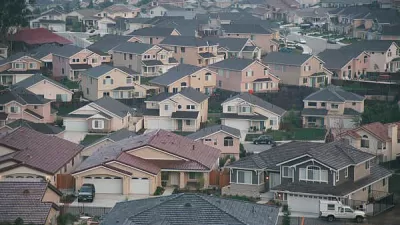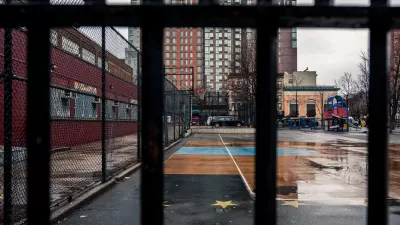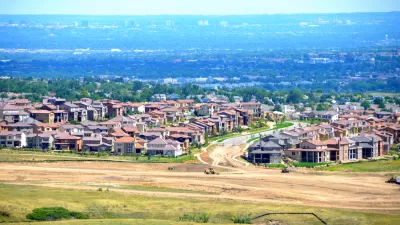A familiar argument of suburban apologists is that people prefer suburban environments over urban environments. Joe Cortright reminds us, however, that "revealed preference" doesn't tell the whole story.

"One of the chief arguments in favor of the suburbs is simply that that is where millions and millions of people actually live," according to an article by Joe Cortright that sets out to debunk that claim.
The counterargument, of course, is that people can only choose from among the options presented to them. And the options for most people are not evenly split between cities and suburbs, for a variety of reasons, including the subsidization of highways and parking, school policies, and the continuing legacies of racism, redlining, and segregation. One of the biggest reasons, of course, is restrictive zoning, which prohibits the construction of new urban neighborhoods all over the country.
Cortright wants to consider whether zoning really actually acts as a constraint on more compact, urban housing by turning to the work of Jonathan Levine and detailed in the book Zoned Out. Cortright wants to get to the bottom of the issue about whether or not there is pent up demand in the market for walkable urban places, and then whether land use regulations make it impossible to build the supply to meet that demand. The point made originally by Levine and explained here again by Cortright: it's true that in some places there is a shortage of cities and an overabundance of suburban-style house. In other metropolitan areas, there's a shortage of all kinds of housing.
FULL STORY: The myth of revealed preference for suburbs

Planetizen Federal Action Tracker
A weekly monitor of how Trump’s orders and actions are impacting planners and planning in America.

Chicago’s Ghost Rails
Just beneath the surface of the modern city lie the remnants of its expansive early 20th-century streetcar system.

San Antonio and Austin are Fusing Into one Massive Megaregion
The region spanning the two central Texas cities is growing fast, posing challenges for local infrastructure and water supplies.

Since Zion's Shuttles Went Electric “The Smog is Gone”
Visitors to Zion National Park can enjoy the canyon via the nation’s first fully electric park shuttle system.

Trump Distributing DOT Safety Funds at 1/10 Rate of Biden
Funds for Safe Streets and other transportation safety and equity programs are being held up by administrative reviews and conflicts with the Trump administration’s priorities.

German Cities Subsidize Taxis for Women Amid Wave of Violence
Free or low-cost taxi rides can help women navigate cities more safely, but critics say the programs don't address the root causes of violence against women.
Urban Design for Planners 1: Software Tools
This six-course series explores essential urban design concepts using open source software and equips planners with the tools they need to participate fully in the urban design process.
Planning for Universal Design
Learn the tools for implementing Universal Design in planning regulations.
planning NEXT
Appalachian Highlands Housing Partners
Mpact (founded as Rail~Volution)
City of Camden Redevelopment Agency
City of Astoria
City of Portland
City of Laramie





























